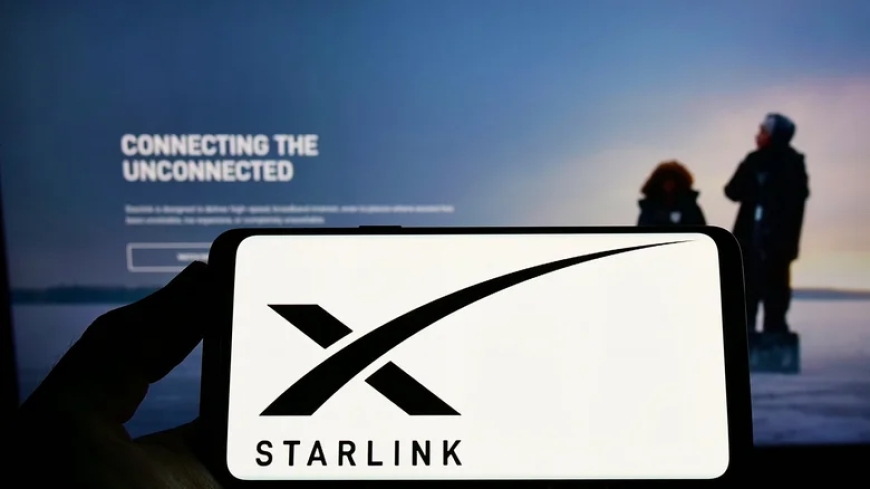Telcos On Edge As Starlink Plots To Have Kenyans Make Calls, Send Texts
Starlink is on the verge of being an alternative communication service provider for Kenyans making calls, sending texts and using the internet on the go through mobile data bundles

The nightmares caused by Tesla billionaire Elon Musk’s satellite firm, Starlink, on Kenyan telecommunication and internet companies are set to worsen after the firm announced plans to bring Internet and mobile services to subscribers’ phones in a strategy aimed at consolidating market share.
In an update on its official website, the multinational announced that the new satellites will have an advanced Evolved Node B (eNodeB) modem onboard that will act like a cellphone tower in space, allowing network integration similar to that of a standard roaming partner.
An eNodeB refers to base station equipment that handles the radio interface with mobile devices. Once activated, the service will connect with ordinary, unmodified phones without the need for extra equipment, provided the devices are 4G LTE-compatible.
LTE (Long-Term Evolution) is a fourth-generation (4G) wireless standard that provides increased network capacity and speed for mobile phones and other cellular devices compared with third-generation (3G) technology. The LTE is used by phone carriers to deliver wireless data to a consumer’s phone.

A graphic of Elon Musk and Starlink. /YOUTUBE
“Direct to Cell works with existing LTE phones wherever you can see the sky. No changes to hardware, firmware, or special apps are required, providing seamless access to text, voice, and data,” wrote Starlink, adding “In addition to expanding mobile coverage, Direct to Cell will enable ubiquitous Internet of Things connectivity outside of terrestrial coverage, connecting millions of devices across critical global industries.”
According to the update, Direct to Cell satellites will initially be launched on SpaceX’s Falcon 9 rocket and then on Starship. “On-orbit, the satellites will immediately connect over laser backhaul to the Starlink constellation to provide global connectivity,” Starlink added.
Text capabilities are lined up for rollout before the close of this year, while voice and data services will be made available to users next year.
In simple terms, Starlink is on the verge of being an alternative communication service provider for Kenyans making calls, sending texts and using the internet on the go through mobile data bundles, a move that poses a direct threat to the dominating telcos in Kenya.
The launch tests were carried out starting January 2, with the firm reporting that the early pilots were completed without issue and that six days after the launch, technicians were able to send and receive the first text messages to and from unmodified cell phones on the ground using the US-based T-Mobile network spectrum.
Among the initial challenges encountered at the time was figuring out how to sufficiently transmit strong radio signals to and from mobile phones that were not designed to connect to satellites.
In response, Starlink revealed the technical team developed custom silicon onboard the satellite that is optimised for this application and reduces both power and cost on the satellite, as well as large and advanced phased arrays that use extremely sensitive radio receivers as well as high-powered transmitters for communicating with mobile phones from space.
“The antennas were designed to ride on the Starlink v2mini satellites and are reliably launched and deployed to low-Earth orbit every few days by the Falcon 9 rocket. Since our vision is to connect everyone using their existing phones without needing a new phone, upgrades, or a special app, we decided to use standard LTE/4G protocols,” notes the firm.
The satellite service will be ready for deployment anywhere across the globe subject to respective regulatory approvals without requiring and dedicated ground infrastructure.
Starlink will also need to forge partnerships with existing telco operators who will provide the critical LTE spectrum that will be used to transmit the satellite signals, which will allow Starlink to integrate like a standard roaming partner with local network operators.
The onboarded operators will in turn be granted reciprocal global access that will allow their users to access the service when they travel to any of the partner countries.
The Direct to Cell service would supplement Starlink’s current home and office installed services that have become popular with a growing number of users in Kenya. However, Starlink might find it tough in terms of partnering with local telco operators.
One of them recently wrote to the Communications Authority of Kenya (CA) calling for new regulations for satellite service providers, lamenting the possible negative impacts brought about by issuing direct licenses to satellite service providers.
"We kindly request the Communications Authority of Kenya ("CA") to carefully assess the risks of granting independent licenses to Satellite service providers and the consequent harm it may cause to Kenya," a letter to CA dated July 5, 2024, and seen by Viral Tea read in part.
The move however sparked uproar with Kenyans accusing the firm of attempting to gatekeep internet access at a time when the demand for internet has surpassed its peak in line with the ever-changing trends brought about by digital disruption.







